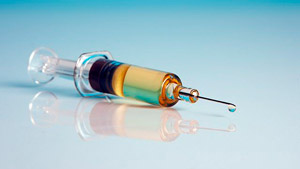Guidelines for Finland’s drug policy remain unchanged

Finland’s drug policy will in the years ahead emphasise continued and improved long-term work at basic level as well as cooperation between various stakeholders. Prevention and early intervention play key roles in actions to prevent drug addiction, criminal behaviour and social exclusion among young people. In practical work the primary aim is to influence drug demand and supply, reduce drug-related harm and promote fundamental and human rights. The guidelines are confirmed in the new Government Resolution on drug policy adopted on 15 December.
The objective of Finland’s drug policy is to prevent the use and spread of narcotic drugs so as to minimise the health, social and individual harms and the economic burden of their use and prevention. Drug policy is implemented in close cooperation with pharmaceutical policy in order to safeguard access to important medicinal products.
The government resolution guides administrative branches in their drug policy activities
The Ministry of Social Affairs and Health is responsible for the national coordination of drug policy. The National Drug Policy Coordination Group will continue its work in 2016–2019. It has representatives from the ministries that are implementing drug policy as well as from the agencies and institutions in their administrative branches. The group’s task is to monitor drug trends and report on them regularly to the Government. It also coordinates the drafting and implementation of legislation and official measures relating to drug policy.
Early intervention in young people’s problems of key importance
The Government Resolution emphasises that a multidisciplinary approach to drug prevention and early intervention is particularly important among young people. Schools and educational institutions will prevent drug use through multidisciplinary school and student welfare teams in collaboration with parents, substance abuse services, social workers, youth services, the police and the third sector. Youth work will form an important part of drug prevention.
Actions against drug-related crime go beyond control
Drug-related crime will be investigated with maximum efficiency. Control of drug-related crime will be based on analysed data and official measures. The Police, Customs and the Border Guard will collaborate to prevent the imports of illicit drugs. Close international cooperation will ensure effective establishment of criminal liability in cross-border drug crime. Crime control efforts should be directed at information networks as a facilitator for the distribution of narcotic drugs.
Preventive measures will be considered even in the actions against drug-related crime. This can mean for example referrals to early intervention or treatment and interviews of underage first-time offenders.
Substance abuse work reduces drug-related harm
Substance abuse services must be provided for drug abusers and their families and friends. Access to services must be based on the client’s need for assistance, support and treatment. Reducing harms caused by drug use is an important element in substance abuse services. The cooperation practices to promote substance abuse services for prisoners and those serving a community sanction will strive to ensure uninterrupted services.
Versatile international cooperation supports Finland’s drug policy
Finland is committed to the United Nations’ conventions against narcotic drugs and the European Union Drugs Strategy 2013–2020. Finland will be actively involved in international cooperation against drugs also in the Council of Europe and the Nordic Council of Ministers. Finland will participate in the planning and implementation of a common drug policy for the EU. EU’s common drug policy strives to have an impact on UN drug policy.
The previous Government Resolutions on drug policy date from 1999–2000, 2001–2003, 2004–2007, 2008–2011 and 2012–2015.
Inquiries:
Director Kari Paaso, tel. +358 295 63340, [email protected]
Elina Kotovirta, Ministerial Adviser, (available 19.12.) tel. +358 295 163977, [email protected]